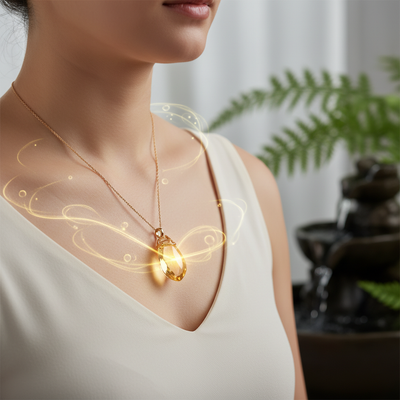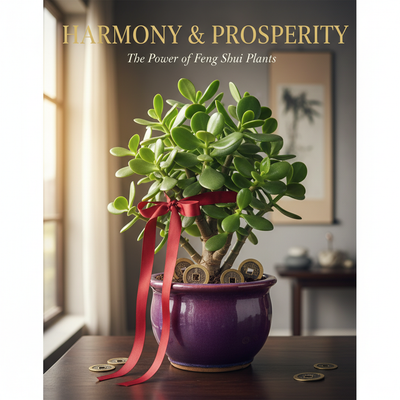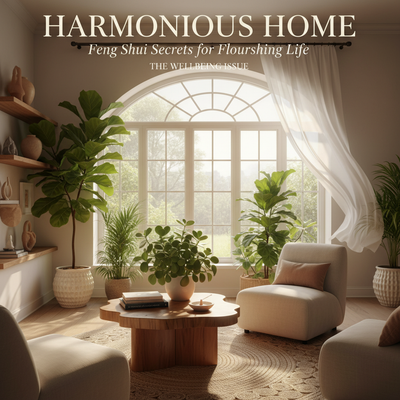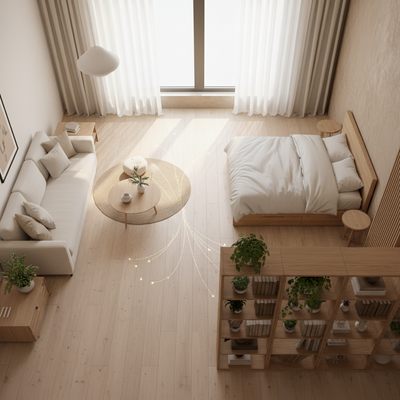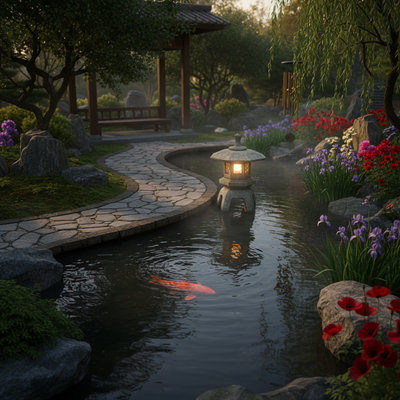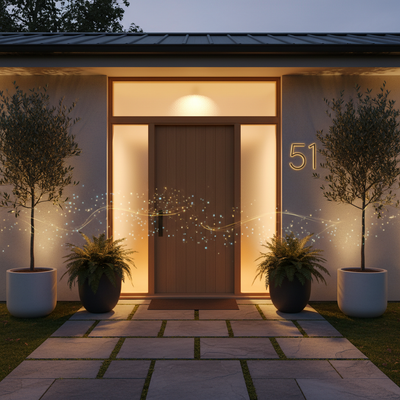Have you ever entered a room and immediately felt comfortable, while another space made you feel tired for no clear reason? The answer might be right above your head. In feng shui, ceiling lights do much more than just provide light; they act like the "sun" of your indoor space. Where you place them, what style you choose, and the type of light they give off directly affects the flow of Qi, the important life energy that moves through your home.
Good lighting can make a space feel better, helping with clear thinking, health, and new opportunities. Bad lighting, however, can create stuck energy or even create Sha Chi, a type of harmful energy that causes stress and blocks progress. This guide will be your complete roadmap. We will start with the basic rules of feng shui lighting, then move to a practical checklist for picking the right light fixtures, and give you detailed advice for each room. Finally, we'll show you common mistakes to avoid and share advanced methods to turn your home into a place of balance and success.
Understanding Basic Lighting Rules

To make smart choices, you must first understand the energetic "why" behind feng shui lighting. These basic ideas are the foundation for creating a home that feels as good as it looks. Think of Qi like a river flowing through your home; lighting is one of the main ways we direct its flow.
Lights as Your Room's Sun
In feng shui, our good fortune comes from the "Three Lucks": Heaven, Earth, and Man. Ceiling lights have a special connection to Heaven Luck, representing the celestial energy of the sun and stars that we bring into our closed spaces. Light is a powerful way to activate Qi. Bright, well-lit spaces are filled with lively, active Yang energy, which encourages activity, conversation, and growth. On the other hand, dim, poorly lit spaces create passive, quiet Yin energy. While Yin is needed for rest, too much of it can lead to stagnation and tiredness. A balanced home needs a lively mix of both.
Avoiding 'Sha Chi' from Above
Not all light is helpful. Sha Chi, or "killing energy," can be created by poorly chosen ceiling fixtures. This negative energy acts like a constant, subtle drain on the people's well-being. The main problems in lighting include:
- Sharp, pointed designs that act like "poison arrows," sending aggressive energy downward.
- Very heavy or low-hanging fixtures that create a sense of physical and energetic pressure, suppressing the Qi below.
- Exposed, glaring bulbs that cause eye strain and fill a room with agitated, harsh energy.
The Five Elements in Light
Feng shui seeks balance through the Five Elements: Wood, Fire, Earth, Metal, and Water. Every object, including your ceiling light, has an elemental connection based on its material, shape, and color. The material and shape of a light fixture are its main elemental characteristics. Balancing these elements through your lighting choices is a key professional method to harmonize a room's energy. A wooden fixture can add growth energy, while a metal one can bring clarity. Understanding this allows you to intentionally "prescribe" the right energy for each space.
Choosing The Perfect Ceiling Light
With the basic rules in mind, selecting a new ceiling light becomes an act of intention rather than just a decorative choice. This practical checklist will serve as your buying guide, helping you choose fixtures that enhance your home's Qi.
Material and Energy
The material of your light fixture is a primary carrier of elemental energy.
- Wood: Connected with the Wood element, these fixtures promote growth, vitality, and family connection. They are excellent for living rooms and dining areas, encouraging strong family bonds.
- Metal: Representing the Metal element, fixtures made of brass, chrome, steel, or bronze bring energies of clarity, precision, efficiency, and joy. They work well for home offices and kitchens.
- Crystal/Glass: These materials are complex and powerful. Glass is connected with the Water element, promoting social connections and a smooth flow of energy. Crystal is considered an Earth element, offering stability and nourishment. The unique ability of multifaceted crystal to break light into a rainbow spectrum is believed to activate and spread all five elemental energies, making it a powerful tool for energizing a space, especially an entryway.
- Fabric/Paper: Fixtures with shades made of fabric or paper, such as drum pendants or lanterns, soften and spread light. This gentle quality is connected with the Wood element (if tall and columnar) or the Earth element (if square or wide), creating a nurturing and calming atmosphere ideal for bedrooms.
Shape and Smooth Flow
The form of a fixture determines how energy moves around and through it.
- Recommended Shapes: Round, oval, and domed shapes are highly favorable. Their lack of sharp corners encourages Qi to flow smoothly and continuously, promoting harmony and preventing energy from becoming "stuck." Square shapes represent the Earth element and are excellent for promoting stable, grounding energy in spaces like a study or family room.
- Shapes to Use with Care: Irregular or chaotic abstract designs can create unpredictable energy, which may feel unsettling over time. The most important shapes to avoid are those with sharp, pointed, or spiky parts that point downward. These fixtures are a significant source of Sha Chi, creating a constant "cutting" energy in the room.
Size, Scale, and Pressure
The "Golden Rule" of feng shui lighting is proportion. A fixture must be in scale with the room's size and ceiling height. A light that is too large for a room or hangs too low feels oppressive, weighing down on the energy of the space and the people within it. This is especially critical over areas where you spend significant time, such as a bed, dining table, or main sofa. As a simple rule of thumb, ensure there is always a clear path underneath the main ceiling light. A minimum of 7 feet (or about 2.1 meters) of clearance from the floor to the bottom of the fixture is recommended in walkways to avoid suppressing the flow of Qi and people.
Brightness and Light Direction
The direction of light from a ceiling fixture has a profound effect on a room's energy.
| Light Direction | Feng Shui Effect | Best For |
|---|---|---|
| Up-lighting | Lifts Qi, creates a sense of spaciousness, reduces pressure. | Low ceilings, bedrooms, relaxation areas. |
| Down-lighting | Focuses energy, can be grounding but also create pressure if too harsh. | Kitchens, workspaces, reading nooks (when properly diffused). |
| Multi-directional | Spreads light and Qi widely, very favorable. | Living rooms, entryways. |
Up-lighting is exceptional for making a room feel larger and lifting the energetic "weight" of a low ceiling. Down-lighting is functional but must be softened to avoid creating pools of pressure. Multi-directional fixtures, like chandeliers or sputniks with soft edges, are excellent for casting light evenly, activating the entire room.
A Room-by-Room Guide
Applying these principles to specific areas of your home allows you to tailor the energy to the room's function. Here is how to choose the right ceiling lights for the most important spaces.
The Living Room
The living room is the heart of the home, a space for family gathering, social connection, and relaxation. Its energy should be both welcoming and harmonious.
- Recommendations: A central, significant fixture acts as the energetic anchor. A modern chandelier with soft curves or a large, elegant flush-mount light works well. The light should be multi-directional to spread Qi evenly throughout the space. Choose a round or gently curved shape to encourage smooth, harmonious conversation. It must be bright enough to illuminate the entire room, symbolizing a bright and clear future for the family. Installing a dimmer switch is a powerful feng shui adjustment, allowing you to shift the energy from active Yang for a party to calm Yin for a quiet evening.
The Bedroom
Your bedroom is a sanctuary for rest, rejuvenation, and intimacy. The lighting here should be soft, calming, and supportive.
- Important Rule: We cannot stress this enough—never hang a heavy ceiling fixture or a ceiling fan with a light directly over your bed. This creates a constant source of oppressive energy aimed at you during your most vulnerable state, which can disrupt sleep, create anxiety, and contribute to health or relationship problems.
- Recommendations: The best choice is a flush-mount or semi-flush-mount fixture installed off-center from the bed. Up-lighting fixtures that bounce light off the ceiling are highly preferred, as they create a gentle, indirect glow. Choose fixtures with fabric shades or frosted glass to ensure the light is always soft and spread out. The goal is to create a nurturing Yin environment conducive to deep rest.
The Kitchen
The kitchen is the hub of nourishment and health for the family, which in feng shui is directly linked to wealth and prosperity.
- Recommendations: The energy here should be bright, clear, and clean. Recessed down-lighting is an excellent choice as it provides ample, focused light without obstructing the space. It's important to ensure the stove—the "fire" and heart of the kitchen's wealth energy—is very well-lit. This signifies control and clarity over your resources. Avoid ornate or complex hanging lights that are difficult to clean. A greasy, dusty fixture in the kitchen creates stagnant Qi and negatively impacts the health-giving energy of the space.
The Entryway or Foyer
The entryway is known as the "Mouth of Qi," the primary point through which all energy and opportunity enter your home.

- Recommendations: This area must be bright, uplifting, and welcoming to attract positive Qi. A beautiful and inspiring ceiling light here sets the energetic tone for the entire house. A crystal fixture is often recommended for a foyer because its faceted surfaces attract vibrant energy and spread it favorably into the home. Whatever style you choose, ensure it is mounted high enough that it does not obstruct the path of the main door and allows for a feeling of openness upon entering.
Five Common Lighting Mistakes
Often, the most significant improvements in a home's energy come from correcting existing problems. Here are five of the most common feng shui ceiling lights mistakes that can drain your home's vitality, and how to fix them.
The Oppressive Overhead Fixture
The problem is a heavy, large, or low-hanging chandelier or fan positioned directly over a bed, desk, or main sofa. Energetically, this creates constant, subconscious pressure on the person below. It can lead to poor sleep, headaches, creative blocks, and even manifest as physical health issues in the part of the body directly beneath the fixture. The solution is simple: replace the fixture with a lightweight flush-mount model, or move the furniture so it is no longer directly underneath.
The 'Poison Arrow' Fixture
This mistake involves installing lights with sharp, spiky, or dagger-like elements. These shapes create aggressive Sha Chi, constantly "shooting" negative energy into the space. The energetic consequence is an increase in arguments, tension, and a persistent feeling of being "on edge" or attacked in the room. The solution is to always choose fixtures with soft, rounded, or gently curved lines that promote a peaceful and harmonious atmosphere.
Ignoring Burnt-Out Bulbs
Tolerating dim rooms or failing to promptly replace burnt-out bulbs is a common oversight with significant energetic consequences. A burnt-out bulb represents blocked, dying, or neglected energy in that area of your life (as defined by the Bagua map). It can correlate with a lack of opportunities, low mood, and a general feeling of stagnation. The solution is to regularly walk through your home and replace any failing bulbs immediately. Ensure every room is adequately and intentionally lit.
Exposed Glaring Bulbs
Fixtures that leave the bare bulb visible, creating a harsh, uncomfortable glare, are a source of aggressive Fire energy. This is not the warming, gentle fire of a hearth, but a sharp, agitating energy. It causes eye strain, irritation, and restless Qi, making it impossible to truly relax in the space. The fix is to always select fixtures that include a diffuser, such as a frosted glass cover, a fabric shade, or an alabaster bowl, to soften and mellow the light.
Poorly Lit Sloped Ceilings
A sloped ceiling already creates an uneven energetic pressure in a room, with Qi pressing down on the lower side. When this lower side is also poorly lit, the effect is magnified, making the room feel unbalanced, oppressive, and uncomfortable. The energy feels "stuck" in the low, dark corner. The best solution is to use lighting to counteract the slope. Install track lighting or wall sconces that wash the entire ceiling—especially the lower portion—with upward-directed light. This visually and energetically lifts the ceiling, creating a sense of balance and spaciousness.
Advanced Lighting Techniques
Once you've mastered the basics, you can use lighting to fine-tune your home's energy with greater precision. These advanced techniques allow you to work with more subtle layers of feng shui.
Lighting and The Bagua Map
The Bagua is the energy map of your home, with nine sectors corresponding to key life areas. You can use specific lights to activate the energy in these corners.
- Wealth & Abundance (Southeast): To activate this area, choose a light with Wood elements (a wooden base, a tall columnar shape) or a vibrant, upward-lifting form to encourage growth.
- Love & Relationship (Southwest): Enhance partnership energy in this corner by using lights in pairs (e.g., matching bedside lamps) or a central fixture that casts a soft, warm, and inviting glow.
- Career & Life Path (North): Support the flow of your career by placing a fixture with Water-like qualities (wavy shapes, glass) or Metal elements (for structure and clarity) in this sector.
Color Temperature Matters
The color of the light itself has a Yin or Yang quality.
- Warm Light (2700K-3000K): This yellowish-orange light is more Yin. It creates a cozy, relaxing, and intimate atmosphere. It is best for bedrooms, living rooms, and dining rooms where you want to encourage rest and connection.
- Cool Light (3500K-5000K): This whiter, more bluish light is more Yang. It promotes focus, alertness, and a sense of cleanliness. It is best for kitchens, home offices, laundry rooms, and bathrooms where tasks are performed.
The Power of Dimmers
Dimmers are perhaps the ultimate feng shui lighting tool. They give you complete control over the energy of a room. By adjusting the brightness, you can moderate the Yin/Yang balance to suit the time of day and the room's function. You can have bright, Yang energy for working or cleaning, and then dim the lights to create a soft, Yin ambiance for relaxing in the evening.
A Real-World Transformation
The principles of feng shui ceiling lights are not just theoretical; they create tangible shifts in people's lives. We see this every day in our consultations.
A Client's Success Story
A family contacted us feeling "stuck," unmotivated, and lethargic in their own home. Their main living area, where they spent most of their time together, felt heavy and uninviting. The culprit was immediately obvious: a dated, oversized, and low-hanging wrought-iron chandelier with downward-pointing, dim bulbs. At THE QI FLOW, our team identified this fixture as a primary source of oppressive Sha Chi, literally weighing down the family's energy. We recommended a simple but powerful change: replace it with a modern, wide, flush-mount drum-shaped light with an off-white fabric diffuser. The new fixture was proportional to the room and cast a bright yet soft, multi-directional glow. The result was instantaneous. The client reported the room immediately felt lighter, more spacious, and infinitely more welcoming. More importantly, they noticed a distinct increase in family conversations and laughter in the room and a general feeling of renewed optimism in their lives. This shows how one change, guided by expert feng shui principles, can dramatically shift a home's energy.
Conclusion: Light Up Your Path
Your ceiling lights are not just for seeing; they are for feeling. They are one of the most powerful and often overlooked tools you have for shaping the energetic quality of your home and, by extension, your life.
As you move forward, remember these three critical takeaways:
- Choose shapes and materials that promote smooth energy flow, favoring round forms, soft lines, and natural materials.
- Ensure every light is proportional to its space and never hangs oppressively over key areas like beds and tables.
- Light your home brightly and intentionally, replacing burnt-out bulbs immediately to welcome positive Qi.
By making thoughtful, conscious choices about your feng shui ceiling lights, you are no longer a passive occupant. You become an active co-creator of a home that supports your health, nurtures your happiness, and illuminates your path to success.
